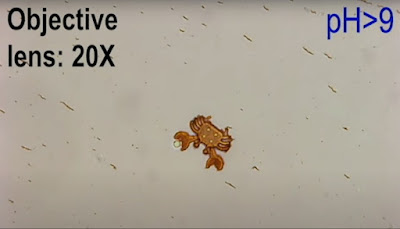Chinese Scientists Print 4D Microbots That Can Deliver Drugs To The Right Place Of The Body
Chemotherapy can be quite successful in treating many forms of cancer, but the side effects of drugs have a negative effect on the entire body. Delivering drugs directly to cancer cells could help reduce the harmful effects of chemicals. Chinese scientists have published the results of experiments, as a result of which they managed to create microbots that transport microscopic doses of drugs to a given area.
Robots less than 100 microns in size, capable of manipulating tiny objects, have been created in the past, but they could not change shape to perform complex tasks like releasing drugs in the right place. Some researchers managed to create the so-called. 4D bots (three-dimensional robots capable of changing shape in response to any impact), but usually they were able to perform only the simplest tasks and could not be controlled remotely.
Doctors Jiawen Li, Li Zhang, Dong Wu and their colleagues have been able to print robots in the form of tiny fish, crabs and butterflies that can deliver drugs to a tumor and release it in situ.
The robots were printed from a hydrogel capable of changing shape depending on the acidity of the medium. The hydrogel was made sensitive to magnets by placing it in a high iron oxide solution to guide the bots through the vessels. Vascular imitation testing showed that, upon reaching cancer cells in a Petri dish, the fish from the hydrogel got into a medium with a different acidity, which forced it to "open its mouth" by delivering the medicine.
Although a proof-of-concept has already been done, microbots need to be further reduced in order to pass through real blood vessels, and a suitable way has yet to be found to track their movement.
The study authors received funding from the National Natural Science Foundation of China and other public and private organizations in the country, as well as support from local educational institutions. The results of the study are published in the American Chemical Society (ACS).
 Main Page
Main Page
Comments